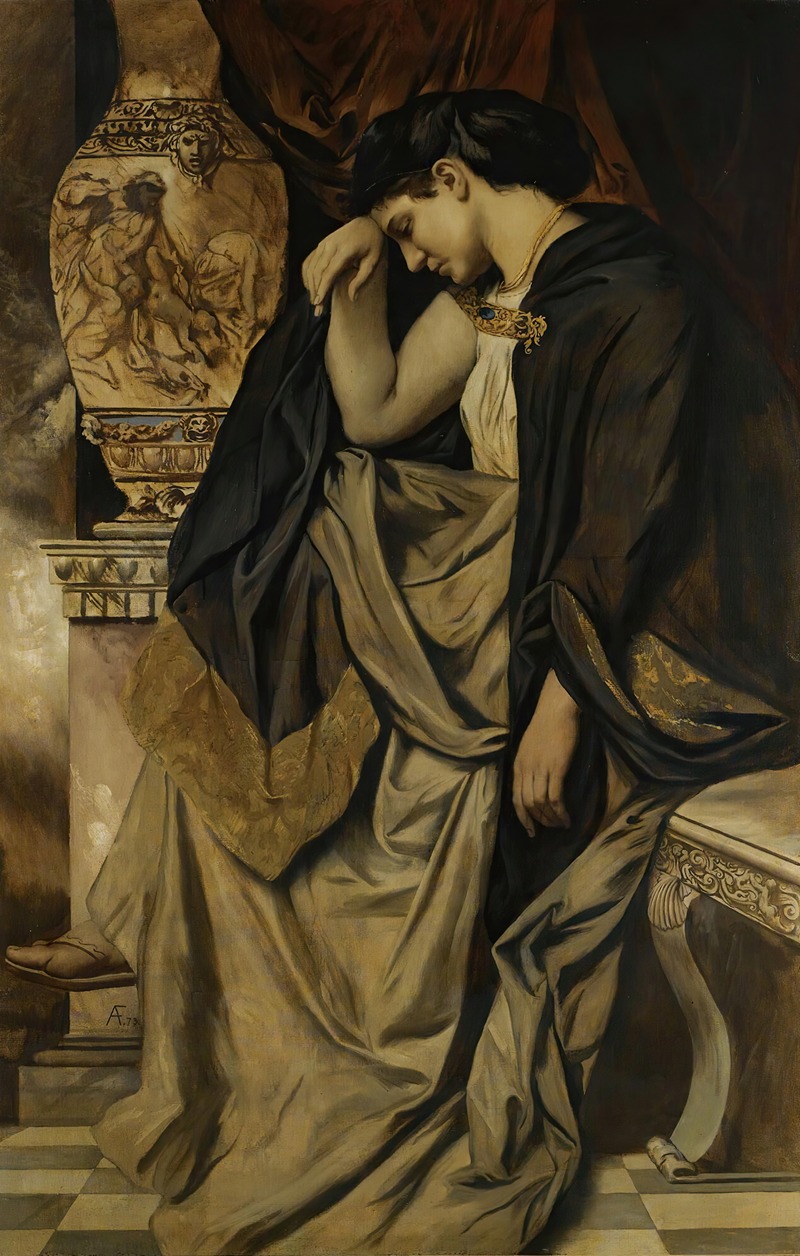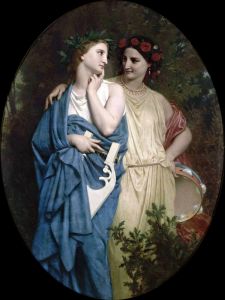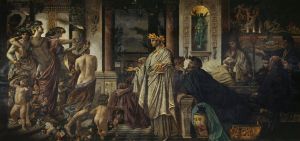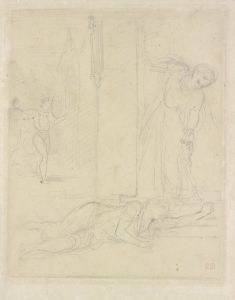
Medea
A hand-painted replica of Anselm Feuerbach’s masterpiece Medea, meticulously crafted by professional artists to capture the true essence of the original. Each piece is created with museum-quality canvas and rare mineral pigments, carefully painted by experienced artists with delicate brushstrokes and rich, layered colors to perfectly recreate the texture of the original artwork. Unlike machine-printed reproductions, this hand-painted version brings the painting to life, infused with the artist’s emotions and skill in every stroke. Whether for personal collection or home decoration, it instantly elevates the artistic atmosphere of any space.
Anselm Feuerbach's painting "Medea" is a notable work of art created by the German painter in the 19th century. Feuerbach, born on September 12, 1829, in Speyer, Germany, was a prominent figure in the German art scene and is often associated with the Düsseldorf school of painting. He is known for his classical style and his ability to convey deep emotion and narrative through his works.
"Medea" was painted in 1870 and is one of Feuerbach's most recognized pieces. The painting depicts the character Medea from Greek mythology, a figure known for her tragic and complex story. Medea was a sorceress and the wife of the hero Jason, whom she helped to obtain the Golden Fleece. Her story is one of love, betrayal, and revenge, famously chronicled in Euripides' play "Medea."
In Feuerbach's depiction, Medea is portrayed in a contemplative and somber mood, reflecting the inner turmoil and emotional depth of her character. The painting captures a moment of introspection, highlighting Medea's isolation and the weight of her tragic decisions. Feuerbach's use of color and composition emphasizes the dramatic and melancholic atmosphere, with a focus on Medea's expression and posture.
Feuerbach's "Medea" is characterized by its classical influences, evident in the painting's composition and the idealized form of the figure. The artist was heavily influenced by his studies in Italy, where he was exposed to Renaissance art and the works of the Old Masters. This influence is apparent in the painting's harmonious balance and the careful attention to detail.
The painting is part of a series of works by Feuerbach that explore themes from classical mythology and literature. His interest in these subjects reflects the broader 19th-century European fascination with antiquity and the revival of classical themes in art. Feuerbach's ability to convey complex emotions and narratives through his paintings made him a significant figure in the art world of his time.
"Medea" is housed in the Staatliche Kunsthalle Karlsruhe, a museum in Germany that holds a significant collection of Feuerbach's works. The painting is an important example of Feuerbach's mature style and his contribution to the development of German art in the 19th century.
Anselm Feuerbach's legacy as an artist is marked by his dedication to classical ideals and his ability to infuse his works with emotional depth and narrative complexity. "Medea" remains a testament to his skill and his enduring influence on the art world. Through this painting, Feuerbach captures the timeless and universal themes of love, betrayal, and the human condition, resonating with audiences both in his time and today.


















